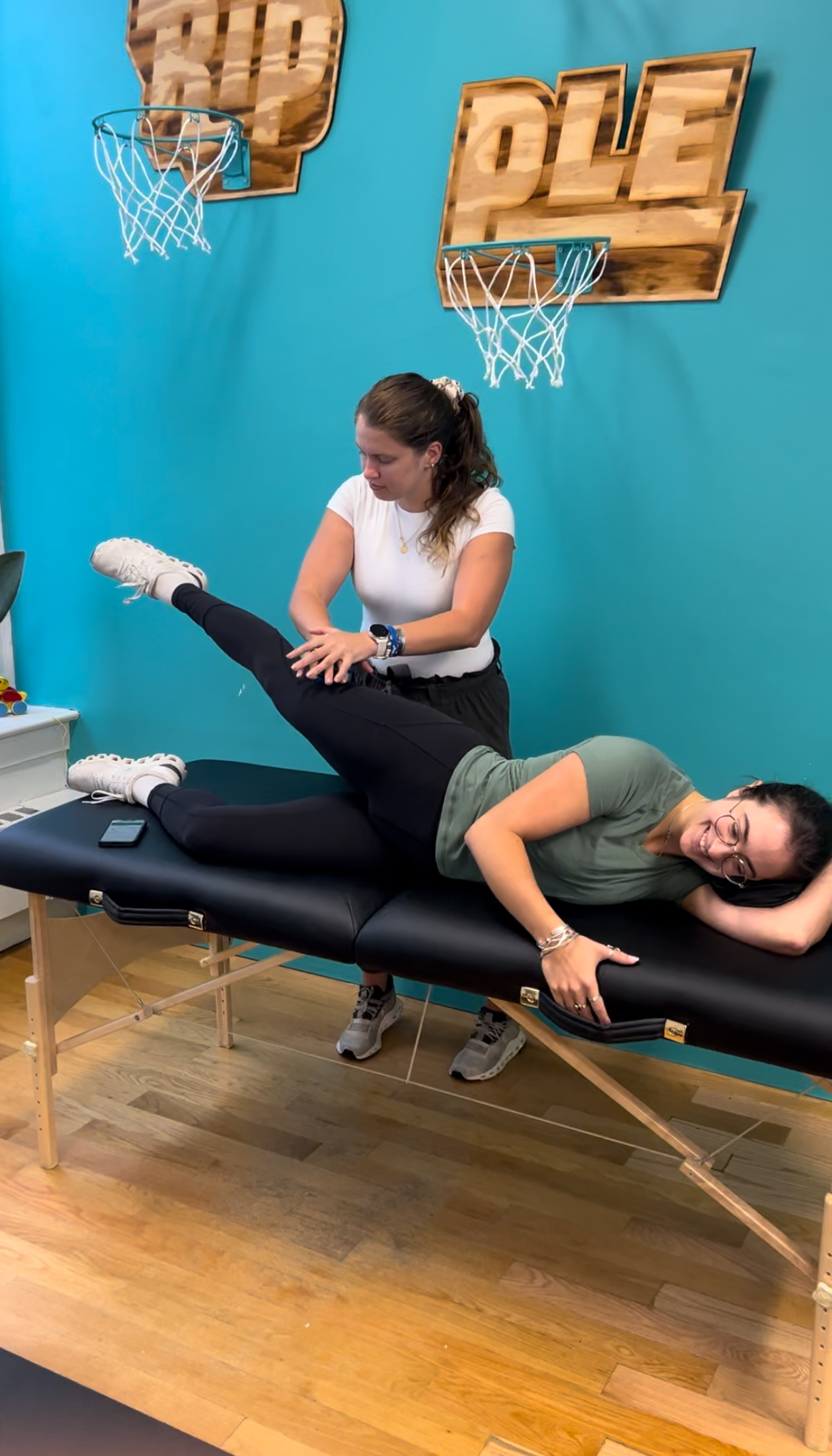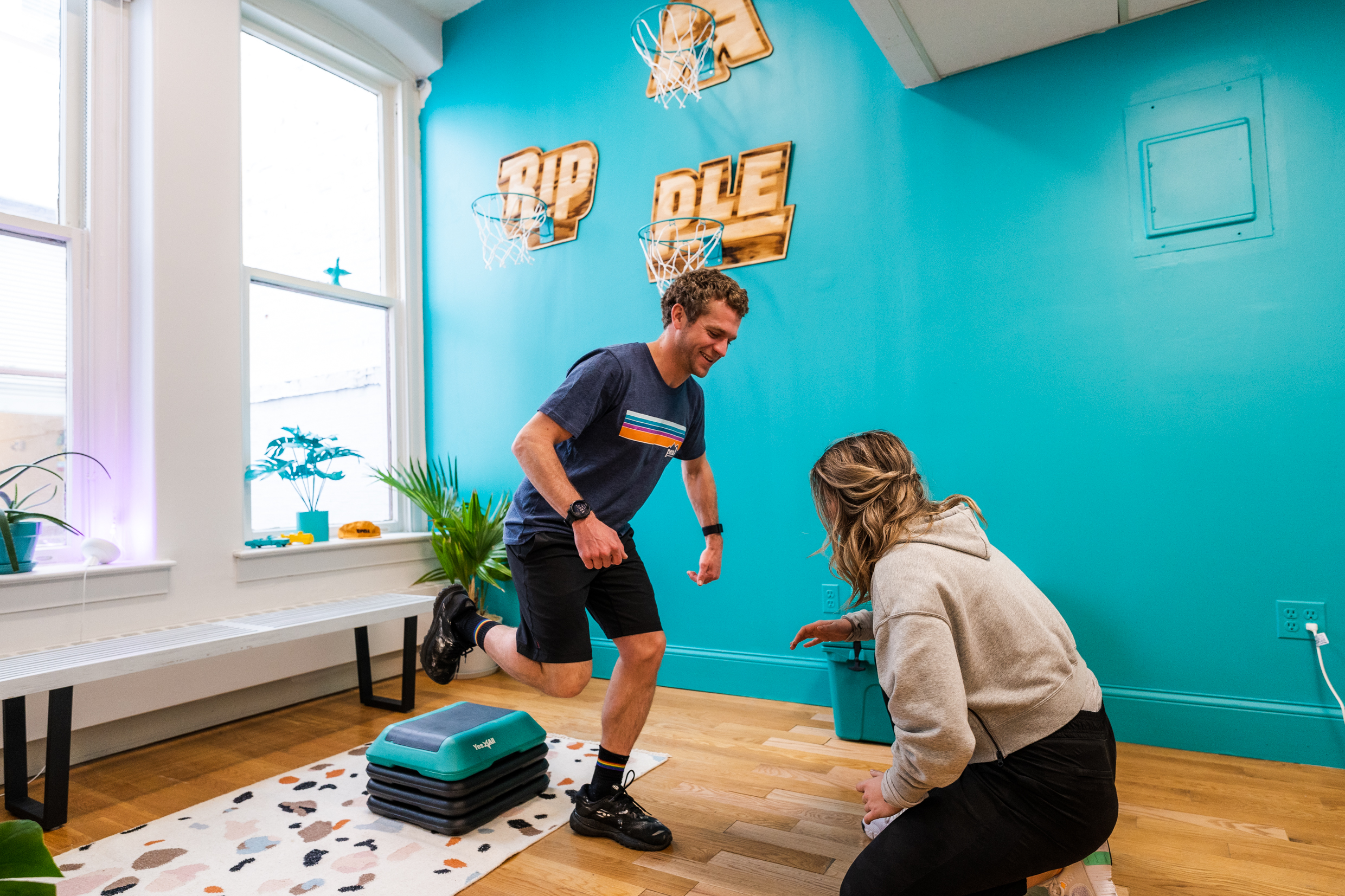How Physical Therapy Can Help Runners Overcome Knee Pain

Knee pain is one of the most frequent complaints among runners—and it’s no surprise. Every stride places significant force through the knee joint, especially during longer distances or high-intensity sessions. Over time, small inefficiencies in form, strength, or mobility can compound into persistent pain that derails training and limits performance.
At Ripple in Boston, we specialize in helping runners overcome knee pain through a targeted, movement-based physical therapy approach. Instead of chasing symptoms, we work to resolve the root cause—so you can get back to running stronger and more confidently than before.
READ: Spring Running on the Esplanade: How to Stay Injury-Free
 What Causes Knee Pain in Runners?
What Causes Knee Pain in Runners?
Knee pain in runners often stems from more than just the knee itself. While the discomfort may be felt around the joint, the source is frequently linked to issues higher or lower in the kinetic chain. Common causes include:
- Patellofemoral Pain Syndrome (Runner’s Knee): Often due to poor tracking of the kneecap, typically caused by muscle imbalances or overuse.
- IT Band Friction Syndrome: Involves tension along the outside of the thigh, which irritates tissue near the knee during repetitive motion.
- Tendinopathies: Overloading the patellar or quadriceps tendons without adequate recovery or strength can lead to inflammation and pain.
At Ripple, we don’t just treat the knee—we look at hip strength, foot control, gait mechanics, and training history to find the real issue. That’s what makes physical therapy not just corrective, but preventative.
How Physical Therapy Targets the Source, Not Just the Symptoms
Runners often try to push through knee pain or manage it with rest and ice—but without addressing the underlying cause, the pain usually returns. At Ripple, our physical therapy approach is built around identifying and correcting the specific biomechanical and movement issues driving the discomfort.
READ: How Ripple PT Uses Gait Analysis to Help Boston Runners Achieve Their Goals
We begin with a comprehensive evaluation that may include:
- Gait Analysis: Observing how you run to identify inefficiencies or compensations.
- Mobility Testing: Assessing joint and tissue restrictions that may impact form.
- Strength Screening: Identifying weaknesses in the hips, glutes, or core that contribute to knee strain.
From there, we design a personalized rehab plan that restores proper mechanics, strengthens support structures, and gradually reintroduces running volume in a safe, structured way.
The Power of Strength and Movement Retraining
Knee pain rarely resolves for good without addressing the way your body moves and loads during running. At Ripple, we place a strong emphasis on retraining movement and rebuilding strength where it matters most.
This includes:
- Hip and Glute Strengthening: These muscles control lower limb alignment and reduce knee load with every step.
- Core Stability Training: A strong core provides a stable base, helping to minimize compensatory movement down the chain.
- Cadence and Stride Adjustment: Modifying stride length or running cadence can significantly reduce joint stress and improve efficiency.
Through consistent, targeted work, runners not only recover from knee pain—they become more resilient, efficient, and confident on the road or trail.
READ: From Marathon Training to Weekend Jogging: The Benefits of Physical Therapy for Boston Runners
Why Boston Runners Choose Ripple for Knee Pain Recovery
Boston’s vibrant running community knows that performance and recovery go hand in hand—and Ripple is built to support both. Our physical therapy team combines clinical expertise with a deep understanding of the demands runners face on pavement, trails, and treadmills.
What sets Ripple apart:
- Running-Specific Rehab: We focus on the unique biomechanics of runners, not just general orthopedic care.
- One-on-One Attention: Every session is tailored to your movement patterns, goals, and training load.
- Long-Term Focus: We help runners recover and stay healthy, not just get back out there temporarily.
Explore more about our approach on the Boston Physical Therapy or About Us pages, or contact us to get started.
Stronger Knees Start With Smarter Rehab
If knee pain is holding you back from running the way you want, it’s time to take a smarter approach to recovery. Physical therapy at Ripple doesn’t just treat pain—it rebuilds your foundation so you can move with power, control, and confidence.
Our Boston-based team is here to help you understand the cause of your knee pain and guide you through a proven path to long-term relief and better performance. Schedule your consultation today and take the first step toward pain-free miles.


